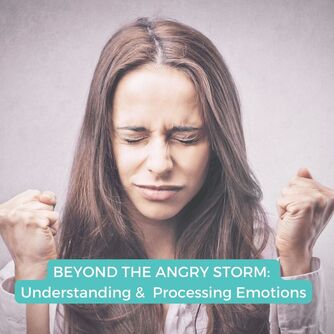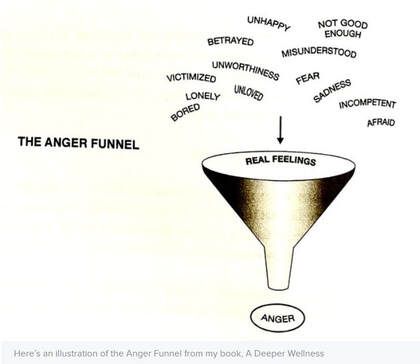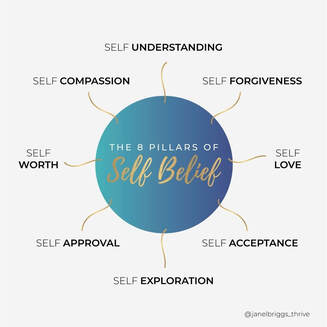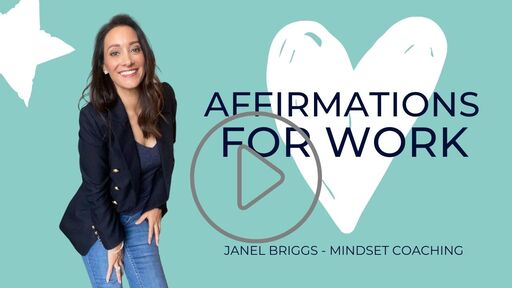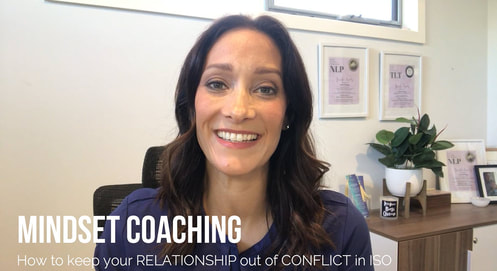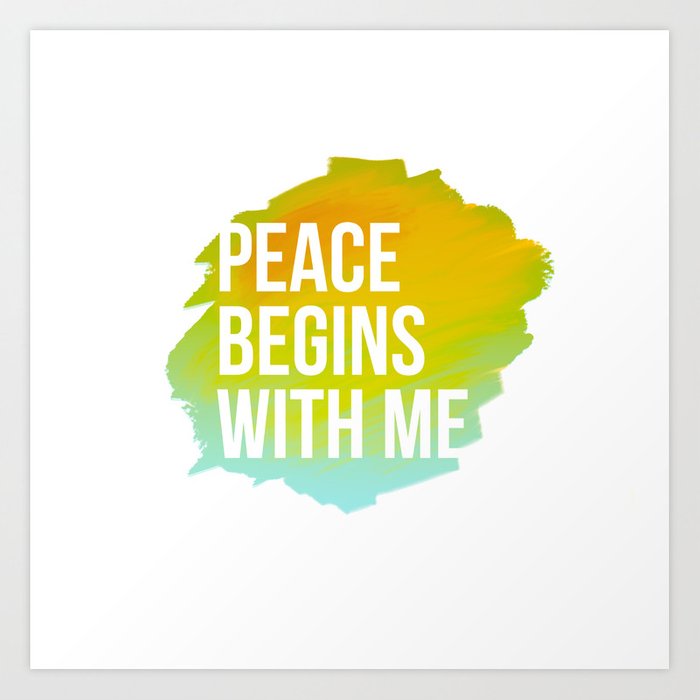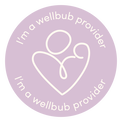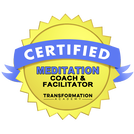AuthorJanel Briggs Categories
All
|
Back to Blog
Have you ever found yourself wishing that someone in your life would change, thinking it would make everything so much better? Many women experience stress, mental and emotional strain as a direct result of the other people's behaviours and actions. "IF ONLY he/she would do THIS, then everything would be OK!"
If they would just make "this change" then our life would greatly improve, and I could stop worrying. I know, how amazing would it be if the people we cared about would do what we want them to all the time!! But here's the sad truth: You can't force anyone to change.No matter how much you want it for them or love them, what you say or do for them... only they can DECIDE to make changes in their life. You cannot control their choices or outcomes. And all that pushing will ultimately cause you more resentment, heartache, stress and pain. Which I know is a super hard to hear. I've been there too. I have multiple people in my life today I would LOVE to see change their ways - but a decade of trying to change them broke me and I had to learn to let it go. I've also seen this frustration in a few of my past coaching clients' relationships. Where women who have journeyed on the path of self-discovery for themsleves now want the same for their partner, sibling, child, or partent. However, in attempting to push them to "see the light" and change their habits and behaviours, they've ended up causing themselves angst. This is what I can share: You can't change them, but you can be the inspiration for their change. Perhaps even a catalyst, by showing them what is possible. The decision for someone to change their life has to be their own, otherwise the transormation may be fleeting or won't stick long term. If you can't walk the path for them, what can you do? Continue to focus on your own personal growth and well-being. Be the light in their life. From my experience it takes patience, but in time you may notice small shifts and improvements both in your life and theirs. Here are 5 actions you can take:
True power is found in changing ourselves and inspiring the change we wish to see in others.  About the Author: Janel Briggs is a NLP and Timeline Therapy Practitioner on a mission to support women across Australia and Singapore in overcoming their professional anxieties, imposter syndrome, fears and insecurities to build unwavering confidence and self-belief. Mindset Coaching is about learning how to become fearless and level up your life and career! Connect with Janel on social media via Linkedin or Instagram.
0 Comments
read more
Back to Blog
We've all faced moments when emotions surge within us like an angry storm. Emotional outbursts, fiery and fierce in intensity take centre stage and knocks us off our center. Defensive barriers go up, words are said, and actions are taken that don't always leave us feeling good. What I've learned is that most of the time, it's not really about "the thing" that triggered the angry storm... is it?
Although those things are super ANNOYING ... they are just the tip of the iceberg, aren't they? It's MORE THAN that "one thing" presenting itself... it goes deeper than that. As a Mindset Coach it's my role to help YOU understand what is laying underneath those icy waters at the base of the iceberg. Where the anger is in fact fueling from. Anger itself is largely perceived as a secondary emotion that shows up when we feel we need to defend ourselves. Most often, it's about OUR NEEDS. What the anger is usually saying is ... when X happens (at home, work, in this relationship) I don't feel: valued. loved. appreciated. included. understood. seen. heard. special. Am I right?? LEARNING TO RELEASE & PROCESS ANGER. Internalised anger and resentment acts like poison in the body, and will eventually end up festering and eating away at the container it is in. The anger held deep down inside, has to come out sometime. It won't stay locked up forever. Sudden outbursts, conflicts and arguments begin to show up in other areas of your life for no aparent reason - not just with the person you originally felt angered by. So, what can you do to release and process before it festers? How to process emotions is sadly not a skill they teach us at school. I call it a skill because it'rs super important to learn and it takes awareness and practice to master. In my belief journaling the #1 way to process your emotions. Here's how you can get started: TUNE INTO THE REAL SOURCE OF YOUR ANGER: 1. What specifically is causing me to feel angry/irritated/frustrated? 2. Is it really about this one thing, or is it more than that? 3. How are my needs are not being met? 4. Where am I holding anger in my body? 5. Acknowledge the true feelings beneath your anger (acceptance) and ask - what do I need to do in order to be at peace? From here, you'll get clear on the next best course of action. J A N E L B R I G G S Thrive Mindset Coaching And, as always if you need more guidance please reach out via DM. Learn more about my 1:1 coacing programs here. TimeLine Therapy is an incredible tool for guiding you to release anger (and various other negative emotions) from it's core and get to the root of the problem.  About the Author: Janel Briggs is a NLP and Timeline Therapy Practitioner on a mission to support women across Australia and Singapore in healing their professional anxieties, insecurities and imposter syndrome to build unwavering confidence and self-belief. The goal is to level up your life and career by learning how to to live fearless and anxiety free! Connect with Janel on social media via Linkedin or Instagram.
Back to Blog
As you probably know by now, our LIFE is a journey filled with countless ups and downs, twists and turns, and unexpected challenges within our story. Along this path, we often encounter mental and emotional roadblocks that hinder our progress, cloud our judgment, and leave us feeling stuck. Whether it's confusion about the next step, anxiety about making the right decision, hitting a creative or career block, a lack of motivation, or crippling self-doubt, the mind spins: Where am I going? Am I happy? What am I doing? When will I be happy? These obstacles can be frustrating and overwhelming, making it very difficult to move forward. Previously, before experiencing mindset coaching, I personally would have notched a roadblock up as failure. My mind had been programmed from a young age, that anything less than 100% was failure.
I would be totally stressed out, spiralling into anxiety overthinking all the WHY's and WHAT IF's... ultimately not feeling good enough. Which never EVER helped the situation! When negative emotions and fear rule the situation - it makes EVERYTHING harder. What I've learned since then is that hitting a mental or emotional roadblock does NOT mean I am a failure, or it’s the end of the road. It's actually a fork in the road, a good check in point. Here's why: An emotion in itself is a feeling, and feelings are not facts. The study of NLP (Neuro-Linguistics-Programming) tells us that we experience our first negative emotions in early childhood, typically 0-7 years old. If the negative emotion that we felt for the very first time (like fear, anger, hurt, guilt or sadness) was too confusing for our young mind, or left unresolved, the memory of that experience (and our reaction or response to it) is stored within the unconscious part of our mind. The part of our mind where our habits and patterns are formed, that essentially runs on auto-pilot. The mind then uses this past experience as a reference point for each time that specific emotion is arises in future. Unconsciously filtering new information coming in and present-day experiences on that past trigger point, even though we are no longer a child. The mind unconsciously in a split second says “remember that time you felt scared about X when you were young? This is JUST LIKE THAT”. When in 99% of circumstances it is not. So, our response as adults now to the fear is bigger and can often be out of proportion to the context of the situation in front of us. Have you ever wondered “Why am I so fearful of X, when other people are not? Why do I get so angry and frustrated about X, when so-and-so doesn’t even care? Why can’t I let go of it?” This is why, shown in my example above, I continued to notch up every “No” in my life as a failure. My mind had unconsciously stored an experience of failure when I was 7yo. From that moment I learned to react and respond with fear in a specific way any time there was a possibility of failure. This inhibited me in many ways throughout my adult life. The specific coaching that helped me to realise all of this and release my fear of failure and reprogram the self-limiting belief I had formed that I was not good enough, was the transformational process of TimeLine Therapy®. You can watch my video below to learn more about TLT or read about it here. Now thankfully, when a roadblock presents itself, I like to see the situation as a unique opportunity for inner growth and self-reflection. I am no longer trapped by fear of failure. And this is what I want for you too. It is the reason why just 6 months after working with a Mindset Coach myself in 2017, I went on to retrain and become a NLP and TimeLine Therapy® Practitioner – so I could pay this gift forward to other women just like me. Where do we start when we hit a mental roadblock? Absolutely, we need to honour our emotions and express them. There is a saying I like to remember: “What we resist - will persist”. You can only deny emotions for so long. We must begin to unpack the emotion and the trigger, and find healthy ways to release the emotion. The most powerful way to do this for me is to journal my thoughts. And instead of falling to pieces I stop and ask 3 simple questions to check in: 1. What emotions am I feeling? Why is this situation causing me to feel this way? 2. What are the options in front of me? 3. What is this situation trying to teach me? Or, what can I learn from this? When you are learning you are growing, and you are NOT failing. It's during these challenging moments that we have the chance to zoom out, look for higher perspectives, and tap into our intuition to find the solutions to move forward with ease. Conquering the fear of failure always begins with a process of self-discovery. The inner work for emotional healing may require patience and perseverance, but please know you are not alone! There is guidance and coaching available to support you, whenever you are ready.  About the Author: Janel Briggs is a NLP and Timeline Therapy Practitioner on a mission to support women across Australia and Singapore in healing their professional anxieties, insecurities and imposter syndrome to build unwavering confidence and self-belief. The goal is to level up your life and career by learning how to to live fearless and anxiety free! Connect with Janel on social media via Linkedin or Instagram.
Back to Blog
A loss of identity and a crash of confidence can feel confronting, challenging and weird (especially when living overseas!). But it is possible to overcome it and get back to you. When I moved to Singapore from Melbourne in 2022, this was not my first rodeo at what they call becoming a “Trailing Spouse”. In 2007, my then boyfriend (now husband!) took a promotion within our company and we moved to the USA for 2 years, our first experience with the expat life. The experience was all parts incredible AND super challenging for me. At the time we were young and free! Dual income with zero responsibilities (remember that?!)- no kids, pets or mortgage! We both worked hard and played hard. We travelled EVERYWHERE, said yes to opportunities, and totally lived it up the experience. But not long after moving cracks began to appear in my mindset and mental health. Trailing spouse depression and identity loss is absolutely a thing, that I had no idea about. It wasn't in the brochure! As a fiercely independent woman of 30 I had NEVER before “given up my life” and put my own aspirations (and needs!) on hold for someone else … who at that time hadn’t even “put a ring on it” yet, as Queen B would say.
I had all the negative feelings, while watching my partner THRIVE in his work and his personal friendships. As you can imagine, this caused a massive strain in our relationship. I had lost my sense of identity, my value and self-worth. I realise now I had put all my happiness eggs in his basket in the relationship, expecting him to be EVERYTHING for me 24/7. I wanted him to fix me! And make me happy! Of course, that pressure was too much. Thankfully, this was a wake up call for me, a turning point where I decided I needed to work on me. I enrolled in University and went back to study, and I enlisted the help of my first NLP Coach and began the journey of understanding who I am, and what I wanted. SIGNS YOU MIGHT BE EXPERIENCING IDENTITY LOSS:
Fast forward 13 years marriage, one child, becoming a Mindset Coach myself and surviving a pandemic - we decide to move to Singapore last year for expat #2. Suffice to say this time I was more prepared. I spent my first few months noticing common themes throughout conversation I was having with other expat women here in Singapore. Pandemic burnout, overwhelm from moving to Asia without a support network, and anxiety arising from uncertainty and changes in working visas were recurring topics at every coffee meet up I joined. I began hearing echoes of the SAME feelings that I used to have. So many women who had moved for their partners career were suffering from an identity loss leaving them with too much time to think and worry about finances in the future. Although very grateful to be in Singapore for the expat experience, frustrations were felt around being unable to work and the fact that they put their life and career on hold to support their other half. This was the catalyst for me deciding to expand my Mindset Coaching business in Singapore. To be able to help these women who are feeling this sense of identity loss. To support those struggling with stress anxiety and ever growing “imposter syndrome” that come with big life changes. New Life Phase A loss of identity can happen at any time it does not relate to age or gender. Experts reveal that it can be triggered when a person enters a new life phase that makes them question their basic understanding of self. Major events such as changing careers, becoming apparent, ending a long-term relationship or moving to a new place can be a catalyst for those uncomfortable feelings where you just feel a bit, well, off. Research shows that relocation is the third most stressful life event possible. On top of this according to an InterNations survey, it's the partner of the expat with the job who tends to be more susceptible to mental health issues such as depression and anxiety and who is negatively affected by the move. Typically, this is because they:
(Tick, tick, tick from my experience way back in 2007!) In the beginning, the expat partner tends to focus on everyone else's happiness and getting the family settled as the priority. Once the transition is complete and all the tasks are done the questions begin to arise what do I do now? What is my purpose here? Where do I fit in? Who am I? Feelings of resentment, frustration, sadness, and hopelessness can set in. How to Shift Your Mindset The first step to navigate any big life change where you're feeling this sense of identity lost is begin to shift your mindset and try to see this journey, or new phase of your life, as an opportunity for personal growth, development and expansion. Here are 6 key points to help you get started: 1. Choose Acceptance Finding a place of acceptance for the circumstances you're in right now is key. Remembering that if your mind is too far in the past thinking about all the things that you don't have, you will continue to feel stuck. If your mind is too far in the future, you'll continue to feel anxious by the uncertainty. Both thought processes make it harder to find happiness and be in the present moment. Do note that acceptance doesn't necessarily mean that you have to surrender or like the situation, but having a willingness to accept your circumstances will release the resistance in the mind that creates undue stress. 2. Create Routine Routine serves as an anchor. Predictable, repetitive routines are calming and help reduce stress and anxiety. Formulating a weekly schedule can help you feel more motivated, organised and productive. How you begin and end your day matters. Are you feeding your mind with positive information and thoughts when you wake up? Are you feeding your body with nourishing food of movement during the day? Are you getting enough sleep? 3. Embrace Exploration Use this time to discover more about who you are:
4. Connect Recognise that you're not alone in your feelings. It can feel daunting to build interpersonal relationships in a new country but connecting with others and sharing your emotions can be very healing. 5. Catch Self-Doubt When negative or unhelpful thoughts creep into your mind, questioning your value or worth, practice catching the thought before it spirals. Understand that not every thought you think is factual, and feelings are not facts. The mind has a protection mechanism that wants to keep you safe. Instead of believing and listening to unkind self-doubt call it out by asking, “Where is the evidence to support this?” or “What is causing me to feel this way?”. 6. Reframe Your Language The words we choose have a positive or negative effect on our mindset. If you believe it's hard and say to yourself “This is hard, I hate this, I don't want this” then it will no doubt be harder for you. Whereas if you use more empowering words such as “I can do this, I can overcome this challenge” the mind will be more open to change and all the possibilities. This article was originally published ANZA (The Australia & New Zealand Association) Magazine Singapore, March 2023 edition (pg 34-35).  About the Author: Janel Briggs is a NLP and Timeline Therapy Practitioner on a mission to support women across Australia and Singapore in healing their professional anxieties, insecurities and imposter syndrome to build unwavering confidence and self-belief. The goal is to level up your life and career by learning how to to live fearless and anxiety free! Connect with Janel on social media via Linkedin or Instagram.
Back to Blog
Do you feel like you move through each day, month, year at the speed of light... but never actually achieve anything? I've been hearing this a lot from my new clients this year, like no matter what they do they still feel so far behind on those big life goals and dreams. Typically, when I hear a similar thought process a few times, I know it's valuable to share wider. So, I am giving you the exact tool I give to my clients in private coaching to increase their overall sense of well-being when goal-getting. It begins with a simple question: Q: When was the last time you celebrated YOURSELF and how far you have already come? The mind can so easily get stuck on "all the things we haven't done" or are "yet to accomplish". The ego telling us we are unorganised, lazy, and need to be "more productive". Essentially the mind's job is to assess for risk but, as you probably know these thoughts cause us to feel GUILT, perhaps like we aren't good enough. And guilt is 100% the biggest showstopper to any good action! Guilt creates resistance. We are less likely to do the things we want to do, when guilt is in the drivers seat. So, to cut the guilt and create more momentum it's time for a reality check. Here is the tool: At the end of each week take 5 minutes to sit and reflect. Grab a cuppa and a notebook and write down the answer to 3 questions: 1. What went well, or what were you proud of last week? |
|
Stay Connected
Subscribe and be the first to access new blog content news & updates. |

 RSS Feed
RSS Feed

